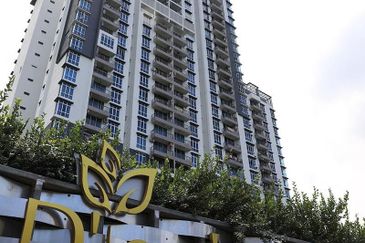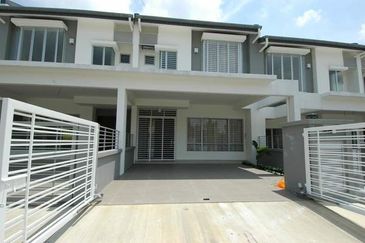HONG KONG: China’s housing market is likely to face increasing policy risks in 2010, according to Knight Frank’s latest report. Aside from tightening the mortgage lending terms for secondary residences, Beijing’s banking regulator has required commercial banks to extend mortgage loans on whichever is lower; bank valuation or stated transaction price. This policy, aimed at combating homebuyer’s practice of understating transacted prices to reduce tax payments has dampened housing demand and may be extended to other cities.
The central government tightened financing, in the form of down payments and mortgage rates for the purchase of second homes in late June 2009 after homes prices staged a healthy rebound. However, it did not prevent secondary home prices in China’s key cities, including Beijing, Shanghai, Guangzhou and Shenzhen from rebounding to levels surpassing their peaks of the previous upturn by 6% to 9% by September. The asking prices of some super-luxury units in Shanghai and Beijing recently reached RMB130,000 (RM64,486) and RMB90,000 per sq metre respectively.
If it were not for poor external demand and a shrinking export sector, China’s central government would have pushed ahead with more drastic tightening measures to curb the rise in residential prices by now, noted Knight Frank.
The central government will likely cool the property market with additional measures when the export sector shows more visible signs of recovery, probably some time next year. However, certain policies placed on the property sector, which hinge on implementation by local governments and commercial banks, may not be as effective as they intend and this will eventually induce the central government to resort to more drastic measures. For instance, although the central government tightened financing for the purchase of second homes in late June, until recently, some buyers of second homes continued to enjoy the same preferential packages intended for their first homes, said Xavier Wong, Knight Frank’s head of research in Greater China.
Wong predicted that in order to curb rising home prices in 2010, the mortgage rates hike, teamed with certain administrative measures would be adopted. “It will be interesting to note whether the banking sector will again rush to lend in the first quarter of 2010, in anticipation of potential tightening measures, and how the central government will react if this happens. In the coming year, the authorities may not be as tolerant towards excessive bank lending as in early 2009, when the global economy was in deep crisis,” commented Wong.
China’s commercial banks have a tendency to achieve their annual lending target early, before potential tightening measures that could disrupt their lending business are announced by the central government. China’s banking sector extended an average of 40% of its annual loans within the first quarter of each year between 2004 and 2008. In 2009, an annual loan target of RMB5 trillion was fully achieved within the first three months of the year.
Despite the policy risks facing China’s housing market, a major correction in home prices similar to what occurred in 2007 and 2008 is not expected due to the unlikelihood of developers lowering prices significantly. Developers have successfully raised additional funds from the capital markets or from the banks following bumper sales in the first half of 2009, which saw a substantial reduction in the residential inventory. Additionally, due to the lack of available land, and increase in state enterprises entering the real estate industry, the land prices have surged in many cities.
The Chinese citizens’ tendency to accumulate substantial savings and their fixation with investing in bricks and mortar may cause China’s property market up-cycle to last longer than those in the West. However, the risk of an investment bubble should not be taken lightly, cautioned Knight Frank.
China’s national savings rate amounted to 52.2% of GDP in 2008 and up to 30% of homebuyers in some cities pays cash to purchase property. According to Wong, this may mean that China’s property market bubble is still in an early stage of formation.
TOP PICKS BY EDGEPROP

D'Ambience Residences (Ikatan Flora), Bandar Baru Permas Jaya
Permas Jaya/Senibong, Johor

Jalan Ceria 15
Iskandar Puteri (Nusajaya), Johor

TAMAN LAVENDER HEIGHTS (SENAWANG)
Seremban, Negeri Sembilan

Alam Sanjung Serviced Apartment
Shah Alam, Selangor

Fairfield Residences, Tropicana Heights
Kajang, Selangor

Suria Residence by Sunsuria
Bukit Jelutong, Selangor



















